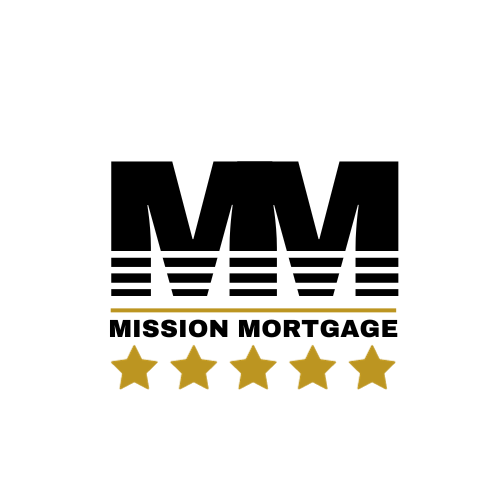Mortgage Glossary
There’s a ton of real estate jargon that can be confusing when you first get started researching your next home. Below are some key phrases, words, and acronyms you’ll likely come across when buying a home.
FHA Loan: A loan insured by the Federal Housing Administration, designed for low-to-moderate-income borrowers; it requires a lower minimum down payment and credit score than many conventional loans.
Conventional Loan: A mortgage not insured by the government, typically requiring a higher credit score and larger down payment than FHA loans.
VA Loan: A loan guaranteed by the Veterans Administration, available to veterans and active military personnel, offering benefits like no down payment and no mortgage insurance.
USDA Loan: A loan program managed by the United States Department of Agriculture, designed to help buyers in rural areas purchase homes with no down payment.
Jumbo Loan: A mortgage that exceeds the conforming loan limits set by Freddie Mac and Fannie Mae, typically used to buy high-priced or luxury homes.
Rate Lock: An agreement with a lender that guarantees a specific interest rate for a certain amount of time, protecting you from rate increases while your loan is being processed.
Points: Also known as discount points, these are fees paid directly to the lender at closing in exchange for a reduced interest rate.
PMI (Private Mortgage Insurance): Insurance that protects the lender if you stop making payments on your loan; typically required for down payments less than 20%.
Home Inspection: An examination of a property's condition, usually performed by a qualified inspector, to identify any problems before purchasing.
Home Warranty: A service contract that covers the repair or replacement of important home system components and appliances that break down over time.
Origination Fee: A fee charged by a lender to process a new loan application, used as compensation for putting the loan in place.
Foreclosure: The legal process by which a lender takes control of a property, evicts the homeowner, and sells the home after a borrower fails to make full principal and interest payments on their mortgage.
Short Sale: A situation in which a lender agrees to accept less than the amount owed on the mortgage, allowing the sale of the property by a financially distressed owner.
Closing Disclosure: A document that provides final details about the mortgage loan you have selected, including the loan terms, projected monthly payments, and how much you will pay in fees and other costs to get your mortgage.
Contingency: A condition or action that must be met for a real estate contract to become binding. A contingency might include a satisfactory home inspection, loan approval, or appraisal.
Underwriting: The process a lender uses to assess the risk of lending money, involving evaluation of the borrower's creditworthiness, the property, and other factors.
Title Insurance: Insurance that protects against losses due to title defects or claims against the property.
Refinancing: Replacing an existing mortgage with a new one, typically to secure better terms or rates.
Principal: The amount borrowed on a loan, excluding interest.
Pre-Approval: A lender's conditional commitment to offer a specific loan amount based on an evaluation of the borrower's creditworthiness and financial situation.
Private Mortgage Insurance (PMI): Insurance required for mortgages with a down payment less than 20%. It protects the lender in case of borrower default.
Loan-to-Value Ratio (LTV): A ratio comparing the amount of your mortgage with the value of your home. A lower LTV ratio is generally more favorable.
Escrow: An account held by a third party to manage payments for property taxes and homeowners insurance. Escrow can also refer to the period between signing a purchase agreement and closing.
Down Payment: An upfront payment made when purchasing a home. It's typically a percentage of the home's purchase price and affects loan amount, interest rates, and whether mortgage insurance is required.
Debt-to-Income Ratio (DTI): A ratio that compares your monthly debt payments to your monthly gross income. Lenders use DTI to assess your ability to manage monthly payments and repay debts.
Credit Score: A numerical expression based on a person's credit history, representing their creditworthiness. Credit scores affect loan eligibility and interest rates.
Closing Costs: Fees and expenses paid at the closing of a real estate transaction. These can include appraisal fees, title insurance, attorney fees, and loan origination fees.
Appraisal: An assessment of a property's value conducted by a licensed appraiser. Lenders use appraisals to ensure the loan amount does not exceed the home's value.
Amortization: The process of paying off a loan through scheduled, periodic payments over time. Amortization schedules show the portion of each payment going towards interest and principal.
Adjustable-Rate Mortgage (ARM): A mortgage with an interest rate that can change over time, usually in relation to an index. ARMs often start with lower rates than fixed-rate mortgages but can adjust upward, affecting monthly payments.

Lets get Started
By pressing “Submit,” you consent to receive text messages from Mission Mortgage Co, LLC. Messaging frequency varies. Message and data rates may apply. Expect important notifications about our services, updates on upcoming meetings, and replies from your dedicated representative. You can opt out at any time by replying "STOP" or send "HELP" for more info to any message. For more information, please read our Terms of Service and Privacy Policy.


